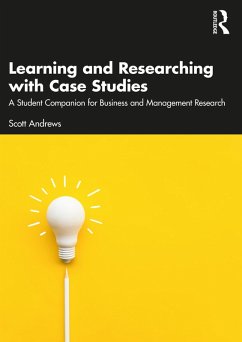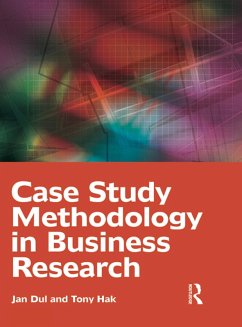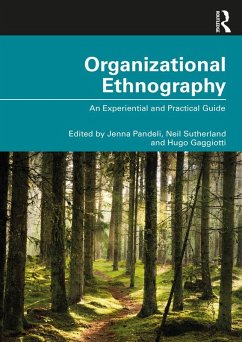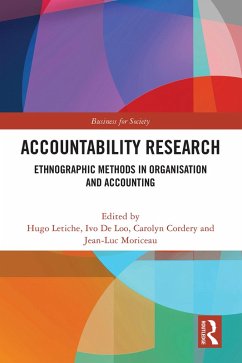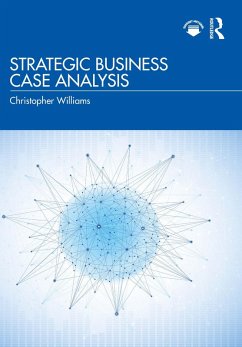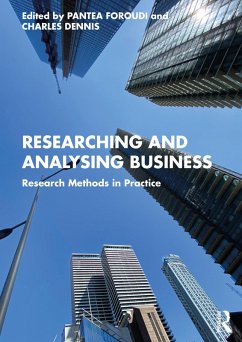
Learning and Researching with Case Studies (eBook, PDF)
A Student Companion for Business and Management Research
Versandkostenfrei!
Sofort per Download lieferbar
44,95 €
inkl. MwSt.
Weitere Ausgaben:

PAYBACK Punkte
22 °P sammeln!
This companion takes the student through the different approaches to working with cases in the classroom, virtually and for research purposes. Capturing insights and best practices shared by scholars of the case method from around the world, this book aims to: equip students to work with and analyse case studies as part of their programme of study adapt student approaches to online learning with cases guide students on how to use case studies as a form of assessment help students looking to adopt a case study approach to a research project These aims are framed in the sections of the book. Eac...
This companion takes the student through the different approaches to working with cases in the classroom, virtually and for research purposes. Capturing insights and best practices shared by scholars of the case method from around the world, this book aims to:
These aims are framed in the sections of the book. Each section contains reflections from academics across the world, personal insights and lessons learnt from case sessions, templates, and exercises to develop your own skills in learning or researching with cases. Full examples showcase the nature of cases by type and format: short incident, exercise case, situation case; single, sequential and digital cases.
This text is for undergraduate and postgraduate Business and Management students, those studying as part of executive education programmes, MBA students, and academics who are using or preparing to use case studies in their learning or research. Online resources include PowerPoint slides, video material and example case studies from around the world.
- equip students to work with and analyse case studies as part of their programme of study
- adapt student approaches to online learning with cases
- guide students on how to use case studies as a form of assessment
- help students looking to adopt a case study approach to a research project
These aims are framed in the sections of the book. Each section contains reflections from academics across the world, personal insights and lessons learnt from case sessions, templates, and exercises to develop your own skills in learning or researching with cases. Full examples showcase the nature of cases by type and format: short incident, exercise case, situation case; single, sequential and digital cases.
This text is for undergraduate and postgraduate Business and Management students, those studying as part of executive education programmes, MBA students, and academics who are using or preparing to use case studies in their learning or research. Online resources include PowerPoint slides, video material and example case studies from around the world.
Dieser Download kann aus rechtlichen Gründen nur mit Rechnungsadresse in A, B, BG, CY, CZ, D, DK, EW, E, FIN, F, GR, HR, H, IRL, I, LT, L, LR, M, NL, PL, P, R, S, SLO, SK ausgeliefert werden.




